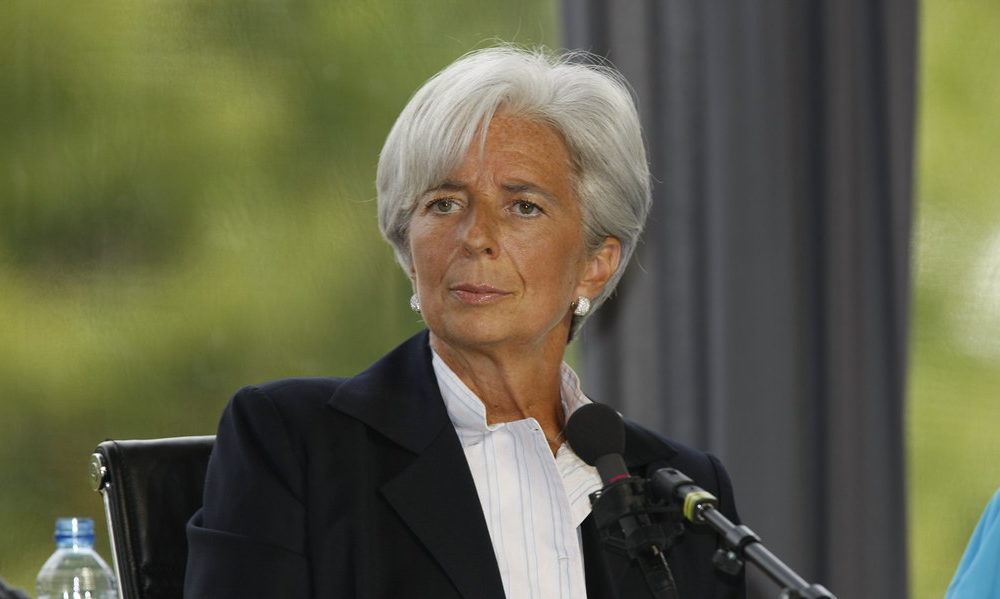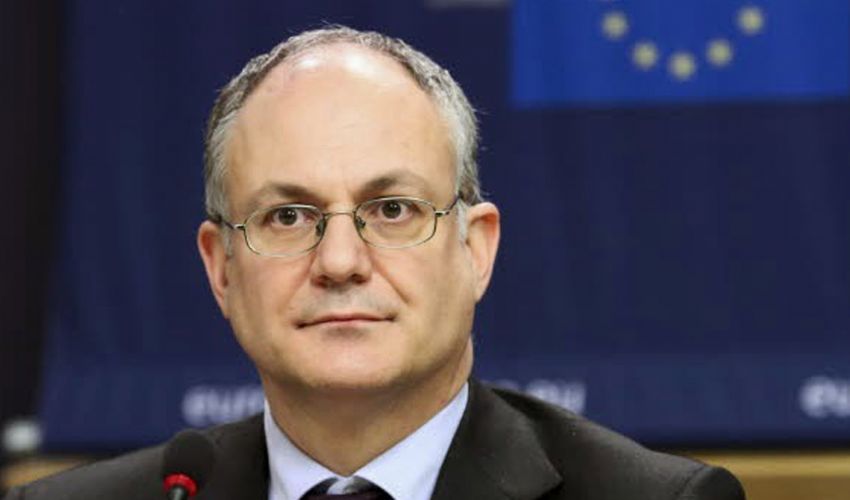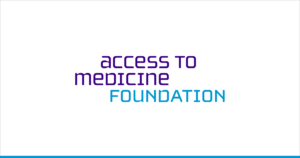Coronavirus, the scenario and the positioning of the funds of Etica.
In light of what is happening on the financial markets in Italy and across the world, we are writing to share with you some thoughts about the current situation and the positioning of our portfolios.
Scenario
Between the end of 2019 and the start of 2020, the main macro scenario expected a global recovery in the manufacturing sector (started between the end of the third quarter of 2019 and the start of the fourth in emerging countries) that would accelerate global growth and bring it back to well over 3%. After stimulating the economy in 2019 with expansionary measures, the Central Banks remained on hold, thereby maintaining the same support for the economic cycle.
Coronavirus
Nevertheless, between the end of January and the start of February the spread of the Coronavirus to Europe (confined to China in late 2019), with Italy as its epicentre, then, recently to the rest of the world, has aroused operators’ concerns, given that the growth and inflation outlook shared at the start of 2020 has been called into question. As fears grow around the effects of the Coronavirus on growth, the financial markets have recorded a sharp increase in volatility.
It is important for market operators to understand how long the demand for consumption and the supply of products will be affected by this momentary slowdown. It will also be important to understand which economic stimulus policies will be adopted, especially as regards fiscal policy, in order to provide a shield for businesses and families and lead them out of this particular period towards normality, minimising the permanent economic effects.
Making an estimate as to what the impact of this shock might be in the medium term is currently anything but simple. If we look to financial investments, one positive is that the crisis we are experiencing is related to health. Unlike 2008, this crisis is external to the economic and financial system. If the situation were to return to normal within the coming weeks, it remains reasonably likely that the global economy would grow again in the second part of the year and partly recover from the current inevitable slowdown.
Central Banks

The Central Banks have implemented technical measures to provide maximum liquidity to the markets in this phase of high volatility and stress. The Fed was the first to take action, making a cut of 50 basis points, and declared itself to be open to additional expansionary measures. Then, faced with the continuous drop in the markets, it intervened again on Thursday the 12th, announcing a liquidity injection of 1 trillion dollars. On 15th March, it made another sudden cut to interest rates to around 0-0.25%, bringing the cost of money to the lowest levels seen during the Lehman Brothers collapse.
The Bank of England also made a cut of 50 basis points and introduced a programme to provide loans to small and medium-sized enterprises. Additionally, it lessened the capital requirements that the banks must have in the event of loans to the British economy.
On 12th March, the Central European Bank intervened in turn, announcing a further 120 billion euro for securities purchases before the end of the year, and new long-term refinancing operations (LTROs) and essentially negative rates for targeted longer-term refinancing operations (TLTROs) intended to fund small and medium-sized enterprises.
It is now important for countries to adopt fiscal policy measures and act to support the economy, companies and consumers. Recent statements from Italy, Germany and France hint at a move in this direction. For now, we are hearing about fiscal policy interventions at around 1% of the European GDP.
Tra la fine di gennaio e l’inizio di febbraio la diffusione del Coronavirus (isolato in Cina alla fine del 2019) anche in Europa con epicentro in Italia e negli ultimi giorni anche nel resto del mondo, ha destato preoccupazioni negli operatori. Questo perché il quadro di crescita ed inflazione condiviso all’inizio del 2020 veniva messo in discussione.
L’impossibilità di determinare con precisione l’impatto economico dell’epidemia ha contribuito a un incremento della volatilità su tutti i mercati, al punto da rendere necessario l’intervento delle banche centrali.
L’epidemia di Coronavirus si traduce sui mercati finanziari in un aumento della volatilità: per gli operatori del mercato è importante comprendere per quanto tempo la domanda per consumi e l’offerta di prodotti saranno condizionate da questa momentanea fase di rallentamento. Inoltre sarà importante comprendere quali politiche di stimolo economico saranno adottate, soprattutto in materia di politica fiscale, al fine di fornire un ombrello per imprese e famiglie tale da traghettarle fuori da questo momento particolare, verso una situazione di normalità, limitando al minimo gli effetti economici permanenti.
The approach of the portfolios of the Etica funds

Given the high volatility of the markets and the continuing uncertainty about the outcome of the current crisis, we consider it prudent to move through this phase with portfolios that limit risks with respect to the reference parameters. We are still paying close attention in order to seize the opportunities that these kinds of situations usually help to create.
Even in these difficult times, we confirm our usual commitment to environmental, social and governance analysis activities, to the constant monitoring of the financial and ESG risk of our funds, and, in general, to all activities that involve us from an economic and financial perspective, as well as in terms of ethics and values.
History has taught us that epidemics come and go, and past events can help us to set up the portfolios of today, especially from a medium to long-term standpoint, which is the time frame of the Etica fund portfolios. The current situation is dramatic and forces us to be vigilant, but we are not allowing emotions to negatively impact our behaviour.
With these opening thoughts in mind, we will now indicate the main points of focus for the management of the Etica funds.
Etica Azionario Fund and equity portfolio of the multi-asset funds

The high correction in place on the equity markets is due to two factors. The main factor is the spread of the Coronavirus epidemic, which has gone from a supply shock limited to the Chinese province of Hubei to a global shock for both supply and demand. Naturally, investors are unable to assess the duration of the event and the current rigorous containment measures. The effect on people’s daily lives increases people’s emotional nature and individual concerns. In financial terms, the difficulty in estimating the impact of this slowdown in demand from consumers on company profits is placing the markets under greater pressure, which for that matter originated from high valuations (especially the United States). The second event that recently impacted the markets was the failure by Saudi Arabia and Russia to come to an agreement on the reduction of oil production, causing a drop in oil prices and a drastic worsening in the financial conditions of the sector’s companies, which hold significant weighting in the corporate bonds sector, with a resulting widening of all credit spreads.
In any case, as long-term financial investors, we must try to stick to the facts as far as possible. In the first instance, when the manager chooses which companies to invest in, the focus is on their valuation. The manager always tries to avoid paying too much for an asset in order to avoid a permanent loss of capital. From this point of view, the managers believe that the shares in the portfolios of our funds had, and more importantly, still have a reasonable valuation.
Secondly, looking specifically at the current situation, the hardest hit sectors are oil, financial and travel, where the exposure of the portfolios of our funds is zero or limited. This means that the correction of the fund’s value is more linked to the current volatility, also caused by forced sales to dispose of speculative positions, and to the worsening of the fair value of the portfolio’s securities. This is why the manager is beginning to assess the opportunities being created, especially for securities which have returned to the valuations of the Great Recession in 2008.
We would also like to remind our customers that the portfolios are well diversified at geographic and sectoral level, and have no exposure to the oil or financial sectors. Moreover, as regards the American market, when the epidemic was confined to China alone, the weighting of the technology companies with the closest links to the Chinese supply chain was reduced. Recently, the weighting of the consumer discretionary sector was also reduced (including hospitality and tourism), while the weighting of basic consumption, which is typically more defensive, was increased marginally and still maintains healthy diversification.
Where Japan is concerned, Japanese stocks are nearing very low valuations (close to the 2008 crisis levels, but with the difference that, now, companies’ accounts are more solid). For this reason, with much selectivity, purchases are being made of industrial and cyclical securities, which had also been affected by the production stop in China, now starting up again.
Unfortunately, we are experiencing a period that is totally out of the ordinary in social and financial terms. Managers are nevertheless continuing to invest, staying true to fundamental values, and looking for good companies, with solid management, that offer potential for appreciation in a difficult, emotional and volatile situation. Finally, despite the markets’ ongoing extremely negative reaction, we believe that the government’s increasingly more incisive and numerous responses and the monetary responses of all the world’s main countries will successfully avoid a credit crunch and a global collapse in consumption. For this reason, we also believe that the inevitable decrease in profits recorded once the situation is back to normal will already be paid off in the current prices.
Bond portfolios of the multi-asset funds

In this context, the bond portfolio in the Etica Sgr range is exposed to the duration nearing that permitted by regulations. The position is balanced across maturities, with a preference for the European core component on the part greater than ten years of residual life.
The country selection over the course of 2020 opted for Italy over other peripheral countries (due to seeking yield and the returning normality of its political and economic situation), and at the end of February the duration contribution of long-term treasury bonds was marginally higher than the benchmark; the phases of extreme weakness in recent weeks have become an opportunity to modulate the slightly increased exposure to Italian government bonds.
Though limited in February and March, exposure remains to the corporate sector at around 5% of the NAV, focused on high-standing issuers, which nevertheless are contributing negatively to the performance in this phase of market weakness. The liquidity of the funds remains high, as does the degree of liquidity of the positions.
Bond portfolio of the Etica Impatto Clima Fund
For the Etica Impatto Clima corporate bonds, the portfolio is divided between issues purchased to exploit the interesting spread in terms of potential yield and issues that reflect the trend of the government bonds, because they are supported by the ECB’s purchase programme or because they are “green bonds”.
Portfolio of the Etica Obbligazionario Breve Termine Fund
In this environment, the portfolio is slightly under-exposed to the duration, compared to its benchmark. The country selection over the course of 2020 opted for Italy over other peripheral countries and, at the end of February, the duration contribution of long-term treasury bonds was higher than the benchmark. The phases of extreme weakness in recent weeks have become an opportunity to modulate the slightly increased exposure to Italian government bonds.
Though limited in February and March, exposure remains to the corporate sector at around 5% of the NAV, focused on high-standing issuers, which nevertheless are contributing negatively to the performance in this phase of market weakness. The liquidity of the funds remains high, as does the degree of liquidity of the positions.
As it stands, there is no significant exposure in the currency sector, aside from the short structural position of US dollars.
Etica operational during the Coronavirus emergency
Etica will not be stopped by the Coronavirus emergency. The company’s activities are continuing as normal, despite the new and additional restrictive measures in force in Italy. The company guarantees business continuity and the normal performance of all operations, whilst protecting and safeguarding the health of its Employees and Associates.
Etica has adopted measures to manage the emergency and ensure the continuity of company activities. Specifically, the financial managers have full access to tools and portfolios, and the Control (Risk Management) and Issuer Selection (Analysis and Research) Areas are operating continuously. Meetings, projects, analyses and checks are going ahead like always. But in an unprecedented manner, which does not hamper productivity or efficiency, and which allows Collaborators and Employees to work remotely for all company business.
Responsible finance Come investire coronavirus Etica Sgr Fondi etici





